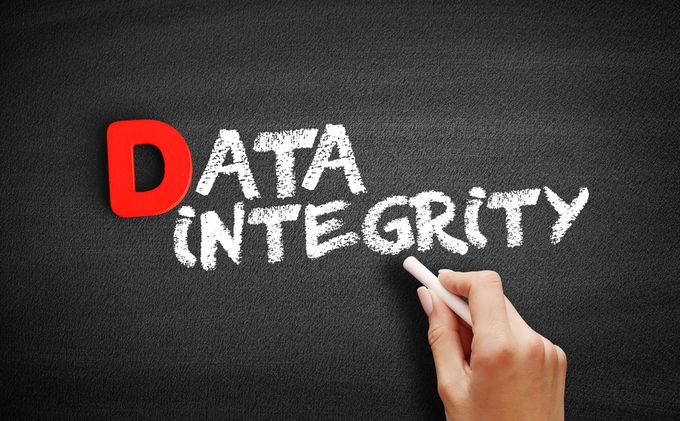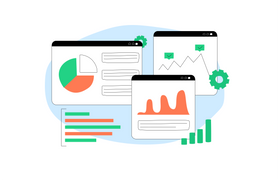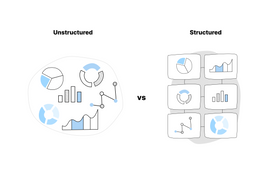How to Reduce Data Integrity Risks
Updated December 28, 2022

Every year, companies set their annual budget, making crucial decisions for the company's foreseeable future. If these decisions are made using unreliable data, it could have a negative impact on the company's bottom line. This is why data integrity is important.
In this article, we'll take a look into what data integrity is and how to reduce data integrity risks.
* Are you having data integrity issues? See what's causing them
What Is Data Integrity?
Data integrity describes the accuracy and validity of your company's data over its lifetime. In other words, it's the quality of your data, or how trustworthy your data is. If your data isn't accurate, it could cause a lot of damage, especially when your executives are using it to make important business decisions.
The Importance of Data Integrity
There are many good reasons why you should aim to keep your data integrity risks to a minimum, including the following:
- Protecting the company's data security: Low data integrity can be dangerous for your company, as data leaks can tarnish your company's reputation. If your data integrity is low, you may not conform to the necessary regulations, which can reduce your company's performance and competitiveness and cost you in the long run.
- Building trust: High data integrity builds trust between colleagues, executives, service providers, suppliers, and customers. It keeps this invaluable resource safe, securing the company's future.
- Promoting business transparency: High data integrity will ensure your data stays private and confidential, promoting business transparency and helping your business in the long term.
12 Ways to Reduce Your Data Integrity Risks
Now that we understand what data integrity is and why it's so important, let's look at some techniques, methods, and strategies you can explore to optimize your company's data integrity. You may want to combine some of these to further heighten the reliability and accuracy of your data and maintain data security.
1. Educate Your Employees
Arrange internal training courses so that your employees understand exactly what's meant by the term "data integrity" and explain their part in minimizing the risks. As technology develops and trends change, you should also offer refresher courses.
2. Have More Than One Storage Location
Having multiple storage locations will help you see if any changes have been made to your data, and you can easily navigate these locations through data federation. A comparison of different data sets will tell you exactly where the data losses or changes have occurred, helping you restore your data integrity as soon as possible.
Examples of two storage locations that work together are a backup system and an archive, whereby the backup system is a current copy of your data that you can use for recovery in case of a disaster or accidental deletion. Another example is your primary storage system and secondary storage system—the former represents the one you use every day, while the latter is used for backup and recovery.
3. Validate Input & Data
Whether your data has been supplied by a known or unknown source, you'll need to implement validation and verification on input to secure data accuracy and ensure your data processes haven't been corrupted.
One way to verify your data is through a data type check, which confirms the data is entered in the correct format. For example, a field might only accept numeric values—if this is true of your database, any entry containing non-numeric characters should be rejected by the system at runtime.
4. Avoid Data Silos
Information kept in information silos inaccessible to different departments clouds business transparency and makes your data ineffective. This directly impacts your data integrity, so you should avoid data silos.
5. Introduce Quality Control
Put all the necessary policies and procedures in place to ensure your data complies and your governance is unshakable. Regular quality control will help you maintain your data integrity more easily, improving your company's knowledge management in the process.
6. Encrypt Your Data
This is especially important when you're managing transmissions between machines or on the internet. Encryption keeps your data out of the wrong hands and protects your company's data integrity.
7. Have an Audit Trail
Your data will go through various life stages. So, keeping an audit trail will help you understand what happens if your data is lost or how it's used.
8. Restrict Data Access
Human error is one of the biggest threats to data integrity. Keep your access control tight at all times and consider using IAM systems to manage data access. When employees leave, make sure you remove their access rights.
9. Remove Duplicated Data
Regularly clean up your data by removing duplicates. There are different tools available to make this task easier for your employees, including advanced search tools that will identify duplicates more easily.
10. Remove Security Vulnerabilities
Security vulnerabilities need to be identified and removed. If you install security patches soon after identifying a vulnerability, you can swiftly protect your data integrity.
11. Back Up Your Data
It goes without saying that you always need to back up your data. Any business, small or large, should have a system in place for data to be backed up automatically. Apart from reducing your data integrity risk, this will also facilitate multiple aspects of your business, like your document management.
12. Have a Strong Password Policy for Employees
Always encourage your employees to use strong passwords. You can also implement an automatic system that forces all employees to change their work passwords once a month for extra peace of mind.
* Need help navigating your data? See the best search strategies for databases
Which Enterprises Are Most at Risk?
Although any company with a data set is automatically at risk, there are three types of enterprises that face the highest level of risk. These are the following:
1. Complex Enterprises
It goes without saying that the bigger the enterprise, the more complex it will be—especially where there have been different mergers and acquisitions over time. Different companies come with their own data sets, which means merging becomes complicated and messy in terms of data integrity.
2. Enterprises Using Outdated IT Systems
Outdated IT systems will always be a challenge because newer systems can do so much more. The lack of functionality in older systems won't pair well with newer systems, which will directly affect your data.
3. Enterprises Making Changes to Their IT Systems or Functions
It isn't always easy to predict how changes to an IT system will affect the integrity of your data. It's easy to understand your integrity will be affected in one way or another, requiring careful supervision as a result.
* Need help keeping track of your data? Consider a top enterprise search tool
Reduce Data Integrity Risks With the Right Tool
Data integrity is a vital part of any organization—it's the foundation that underlies all operations, and without it, your business won't be able to function. That's why it's so important to invest in data integrity solutions that are affordable, easy to use, and reliable to prevent any damage to your company caused by low data integrity. And with these tips and tools, you'll be well on your way to getting a handle on this issue before it spirals out of control.
* Want to ensure data integrity with a powerful search tool? Reach your goals with Unleash




